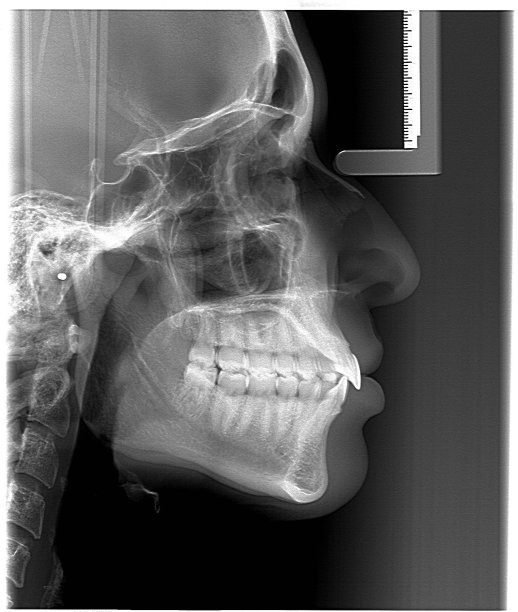Summary: Root canal treatment is a common dental procedure aimed at relieving pain and saving a tooth. However, understanding essential precautions can significantly impact the safety and success of the treatment. This article outlines crucial steps every patient should consider before undergoing a root canal. By being aware of the procedure, communicating effectively with your dentist, managing anxiety through relaxation techniques, and following post-treatment care, patients can ensure a smoother and more successful root canal experience. From selecting the right dental professional to taking care of mental well-being, these precautions are designed to empower patients and promote a positive outcome.
1. Understand the Root Canal Procedure Thoroughly

Before undergoing a root canal, it is vital for patients to have a clear understanding of what the procedure entails. Root canals involve the removal of infected or damaged pulp from inside the tooth, which is then sealed to prevent further infection. Knowing the process helps alleviate fears and allows patients to engage in informed discussions with their dentist.
Patients should not hesitate to ask their orthodontist or dentist specific questions about the procedure. Inquire about the techniques used, the expected duration, and possible discomfort levels. Uptake of knowledge can help patients better prepare for the treatment, ultimately easing anxiety related to the unknown.
Interactive resources such as videos or pamphlets can offer valuable insights too. Understanding the full scope of the treatment can also lead to more willingness to comply with recommended practices that ensure optimal outcomes before, during, and after the procedure.
2. Communicate Openly with Your Dental Professional
Effective communication with dental professionals is crucial for a successful root canal treatment. Patients should provide detailed information about their medical history, including allergies, medications, and pre-existing conditions. This information is essential for the dentist to tailor the treatment appropriately.
Furthermore, patients should express any concerns or fears they have regarding the procedure. By voicing these feelings, dentists can offer reassurance and alternative options to make the treatment more comfortable. Whether it involves discussing anesthesia options or exploring sedation dentistry, an open conversation fosters a collaborative environment.
Additionally, do not shy away from discussing the anticipated outcome and the risks involved. Knowing what to expect eases apprehensions and creates a more trusting relationship between the patient and the dental team, which enhances the overall experience.
3. Manage Anxiety and Prepare Mentally
Anxiety can significantly impact how patients perceive and react to dental treatments. Thus, it is essential for individuals to utilize relaxation techniques to ease their nerves. Simple practices such as deep breathing exercises or visualizing a positive outcome can be of great benefit in diminishing pre-treatment anxiety.
Consider arriving at the dental office early and practicing mindfulness or listening to calming music. Creating a soothing atmosphere can make a tremendous difference in how the patient approaches the procedure. Involve friends or family members if needed, as their support can provide additional comfort.
Additionally, the use of anxiety management options, such as sedation or anti-anxiety medication, can also be discussed with your dentist. Preparing oneself not just physically, but mentally, can lead to a more successful treatment experience.
4. Follow Post-Treatment Instructions Carefully
After the root canal procedure, following the post-treatment care instructions is imperative for optimal recovery. Dentists provide specific guidelines that might include dietary recommendations and pain management strategies. Adhering to these instructions can minimize the risk of complications.
Patients should be vigilant about recognizing any alarming symptoms, such as excessive pain, swelling, or signs of infection. Prompt communication with the dental office is crucial if any concerning symptoms arise. Early intervention can prevent further health issues.
Additionally, scheduling a follow-up appointment is vital for the dentist to assess healing progress. Consistency in oral hygiene and attending regular check-ups will help maintain the health of the treated tooth, ensuring that the investment in dental care yields lasting benefits.
Summary:
In summary, being equipped with knowledge about the root canal procedure, having effective communication with dental professionals, managing anxiety, and diligently following post-treatment care plays a significant role in ensuring a safer and successful outcome. Taking these precautions aids in alleviating stress and promotes an efficient healing process.
This article is compiled by Vickong Dental and the content is for reference only.
Vickong Dental
Vickong Dental is a large medical group established in Hong Kong in 2008 by professors from well-known medical universities in Guangdong and Hong Kong, as well as medical doctors from key national '985' universities (including Master's supervisors and senior professors). The chain of branches brings together expert dentists with PhDs and Master's degrees from Hong Kong and Mainland China, committed to providing high-quality dental treatment.
"Vickong Dental Practices the University Motto of 'Healing and Serving Society,' with a Stable Operation for Sixteen Years. It Has Been honored with Hong Kong Enterprise Leaders's Choice,' and is a Global Trusted Implant Center for the Nobel Implant System. Recommended by Hong Kong Metro Broadcast and Guangdong Television, it Serves Customers from Over Thirty Countries and Regions, Gaining the Trust and Favor of Citizens from the Guangdong-Hong Kong-Macau Greater Bay Area and Surrounding Cities.

Thousands of customers' unanimous praise
The most recognized and highly recommended dental service by customers in the Guangdong-Hong Kong-Macau Greater Bay Area
We Ensure You Receive Detailed Care and Attention Here
Hong Kong standards, Shenzhen prices, Your Trusted English-speaking dentists

Vickong Dental Medical-Grade Instrument Disinfection Process
Vickong Dental Medical-Grade Instrument Disinfection Process

Vickong Dental Chain: A Warm and Comfortable Environment for Treatment






Appointment Hours

Q&A
Why choose Vickong Dental?
Vickong Dental practices the university motto 「Medicine to Benefit Society」, with each branch bringing together highly qualified dentists with doctoral and master’s degrees from Hong Kong and the Mainland, and has maintained seventeen years of steady operation。Recipient of 「2024 Hong Kong Enterprise Leaders Brand」, 「2025 Hong Kong Enterprise Leaders Brand」, a Nobel Biocare Global Trusted Implant Center, and a brand recommended by Metro Radio Hong Kong and Guangdong TV。
To date, we have served customers from more than thirty countries and regions,earning exceptionally high word-of-mouth recognition and trusted recommendations from residents across the Guangdong-Hong Kong-Macao Greater Bay Area and surrounding cities
We have eight major branches in Zhuhai、Shenzhen,and a consultation and service assurance center in Hong Kong,so you can book a free consultation at any time for any questions,which is very reassuring.
If I do not accept the quotation after the CT scan, will I be charged??
No! As long as the actual treatment has not started, you will not be charged any fees.
Will there be any additional charges during the treatment process?
No, there won’t be any additional charges. Before treatment begins, we will clearly explain the treatment plan and its corresponding fees. Only after the patient agrees and signs the consent form will we proceed with the dental service.
Can I pay in Hong Kong dollars?
Yes. Vickong Dental accepts payment in Hong Kong dollars. The amount will be converted based on the exchange rate of the day, and the applicable rate will be clearly communicated to you in advance.
Can I reschedule my appointment at any time?
Yes. Please contact us via **WeChat** or **WhatsApp** as early as possible, providing your original appointment time and details, along with your preferred new date and time slot for rescheduling.













